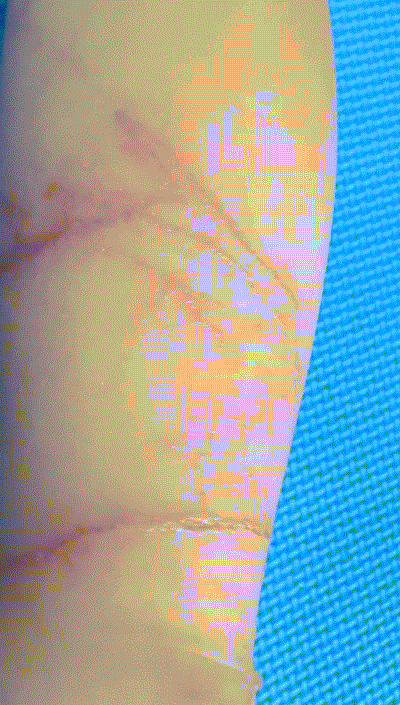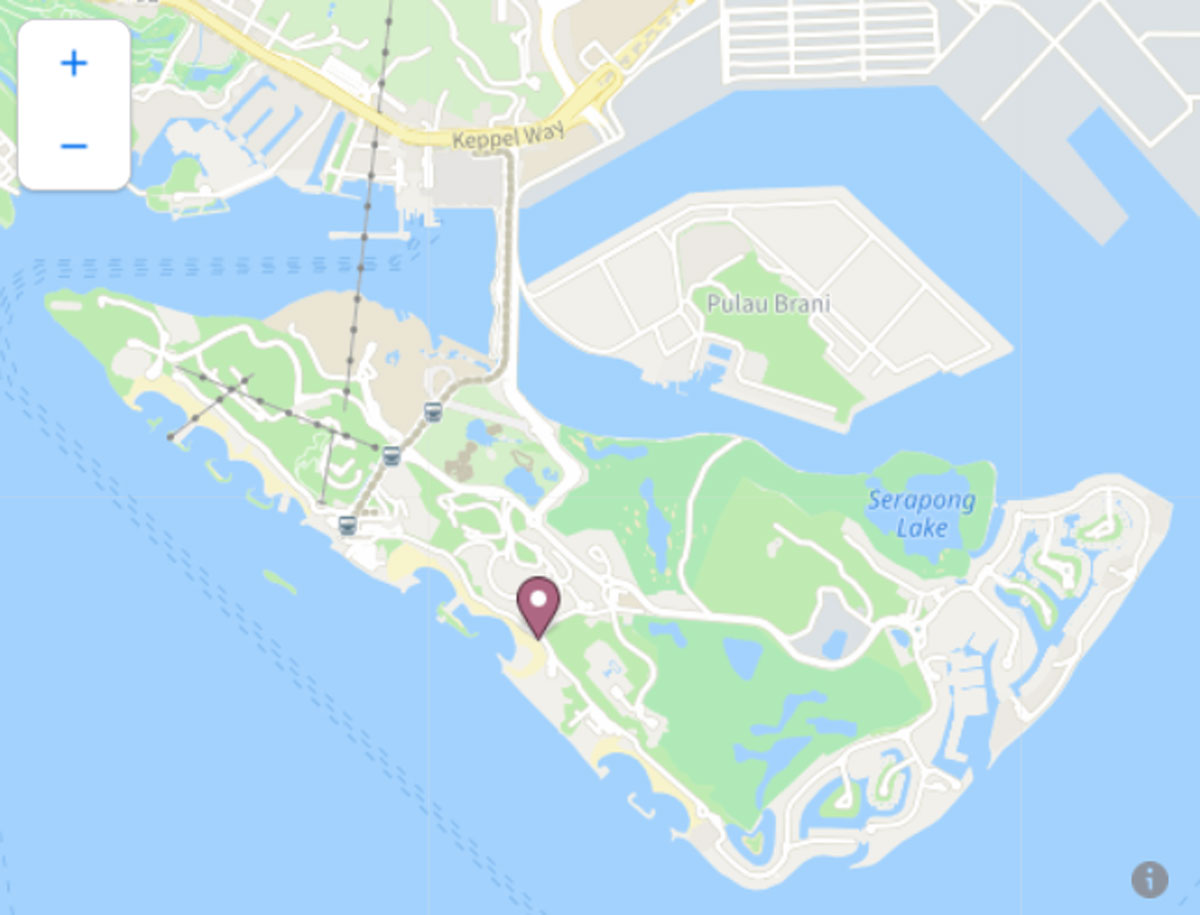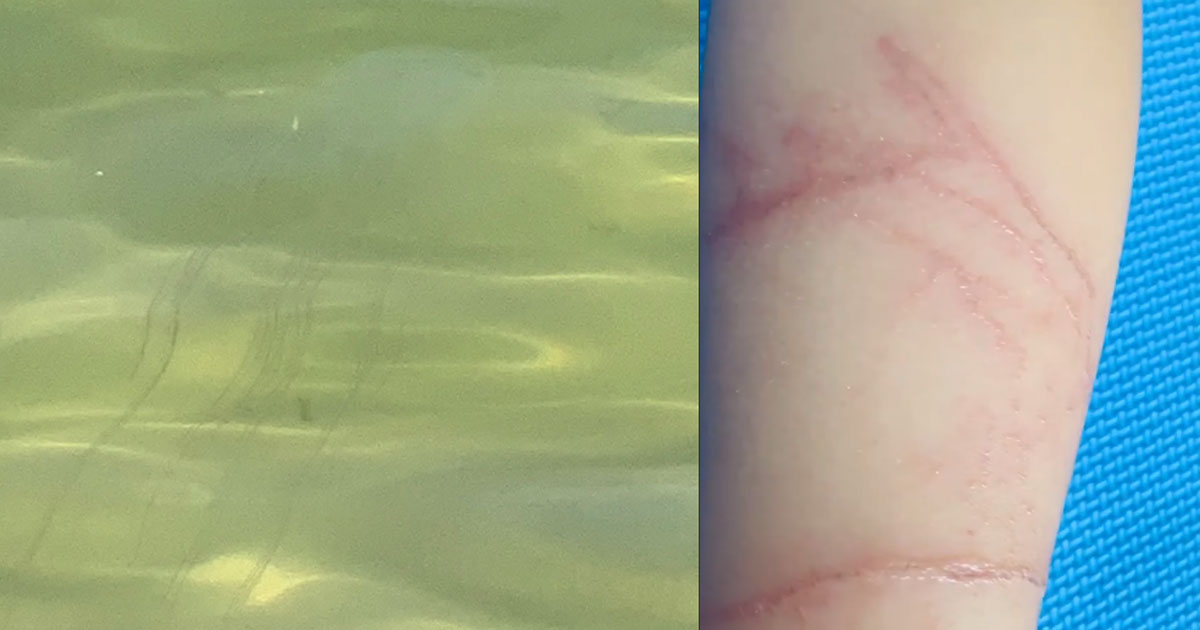Update, July 19, 2:25pm: Sentosa Development Corporation has clarified that the woman did not seek the assistance of beach patrol officers who would have vinegar on hand to treat jellyfish stings.
A child was believed to have been stung by a venomous box jellyfish in the waters off Sentosa on Friday, July 17.
A video accompanying the post showed the extent of the jellyfish sting, with blisters and red markings highly visible on her leg:

This is according to a July 18 Facebook post by a Sentosa resident:
The post read:Hi my daughter was paddling in shallow water near FOC yesterday where she was stung on the leg quite badly by a box jellyfish. I’ve attached photos of the jelly and of her leg. We are treating it and a lot of the information below is relevant. Please take precautions on the weekend with your children around Sentosa waters
FOC refers to "FOC Sentosa", an eatery located at Tanjong Beach Walk near the southwestern edge of the island.

According to the parent who is a Sentosa resident, they had to rush home, which was 10 minutes away, to apply the vinegar on her child’s legs and hand.
In response to get-well-soon messages, the parent replied:
She’s dealt with it very well thank you. We just need to make sure those blisters don’t get infected. It would be an idea for the life guards there to have vinegar handy. We rushed her home (we live on Sentosa so very close) and got vinegar to her legs and hand within 10 minutes which helped a lot.
Sentosa Development Corporation has reached out to Mothership.sg to clarify that the woman did not seek assistance from beach patrol officers who would have vinegar on hand.
The woman’s response about beach patrol officers keeping vinegar on hand was just a suggestion.
This is Sentosa Development Corporation’s advisory in full:
As jellyfish have reportedly been sighted at our waters, guests are advised to be alert when swimming at our beaches.
For your safety, please do not attempt to touch jellyfish if you see any, and alert other beach-goers and Sentosa’s on-ground Beach Patrol Officers (BPO) to its location.
If stung, please do not rub the affected area nor use fingers to remove the tentacles. Please contact our on-ground BPOs for first-aid assistance.
The safety and wellbeing of our guests are of paramount importance to us.
We would like to assure guests that our BPOs are conducting regular surveillance of our beaches and waters. Should you require assistance, please approach our on-ground BPOs or call 1800 RANGERS (1800 726 4377).
Context
Sightings of box jellyfish in Singapore waters have been reported the past few weeks.
Previously, a box jellyfish was spotted in the waters off One Degree 15 Marina at Sentosa Cove on July 3.Multiple sightings of a box jellyfish were subsequently reported.
The warnings were sounded by Marine Stewards, a non-profit group that promotes marine conservation in Singapore.
In response to a media query from Mothership.sg after the July 3 sighting, the National Parks Board (NParks) said the agency is aware of the sighting of the box jellyfish.
NParks also added that box jellyfish are highly venomous.
This is due to their deadly toxin, which helps them to instantly kill or stun their prey, like fish or shrimp, thus reducing the damage to their tentacles, according to National Geographic.
A sting from the box jellyfish is extremely painful and can cause severe hypertension, extreme lower back pain, nausea, cardiac and respiratory arrest.
It can also be fatal.
NParks also advised that if one is stung by a jellyfish, the affected area should be rinsed with seawater or vinegar and no attempt should be made to try to remove the tentacles.
Victims must seek medical attention immediately.
NParks is currently working with relevant stakeholders, such as the academic, boating and recreational communities, as well as agencies whose staff work in and around the coastal waters where the jellyfish was sighted.
NParks is working with academic partners from the National University of Singapore to collect water samples from various coastal areas to conduct DNA analysis, and to help detect the presence of the species in these areas.
If a member of the public spots a box jellyfish in local waters, they should the NParks helpline at 1800-471-7300, and not handle the jellyfish directly.
If you like what you read, follow us on Facebook, Instagram, Twitter and Telegram to get the latest updates.
